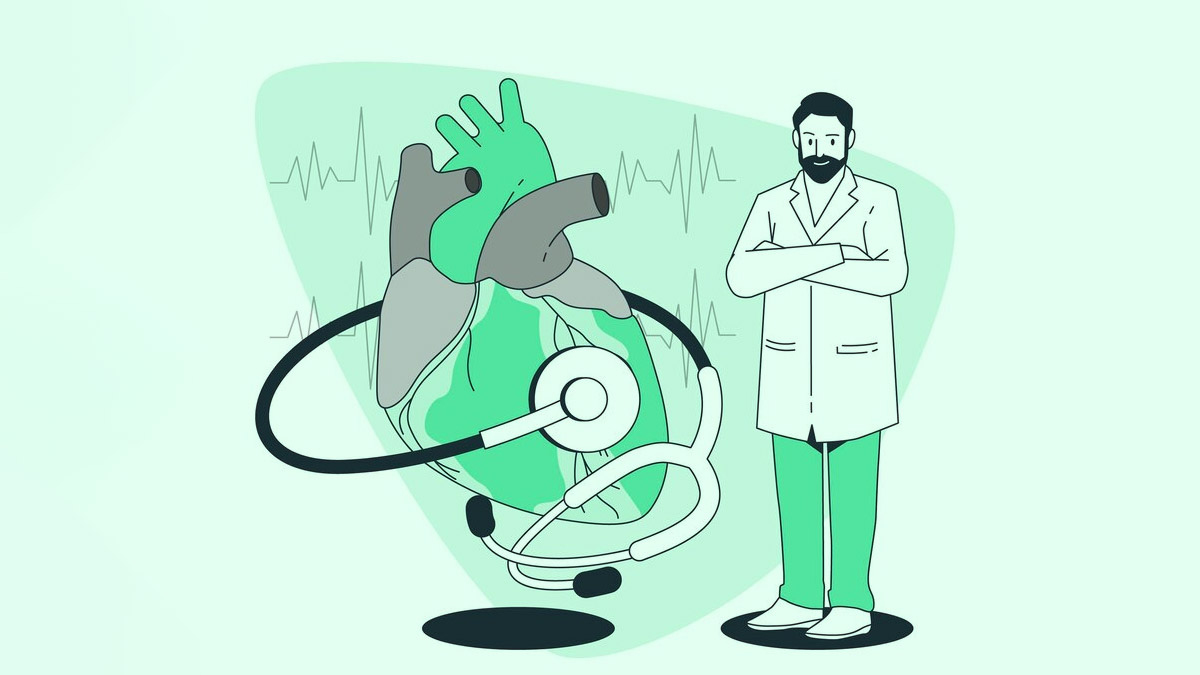
Have you ever wondered what happens to your blood pressure during serious conditions, such as heart attack? A heart attack happens when the heart's blood flow is blocked. During a heart attack, a person's blood pressure can increase, decrease, or remain unchanged. We spoke to our expert Dr Liju A, MBBS, MD, General Medicine, DM Cardiology, Apollo Spectra Hospital, Chennai, who explained heart attack and its impact on blood pressure.
Table of Content:-

“A heart attack, known medically as a myocardial infarction, happens when blood flow to a portion of the heart is restricted or blocked. This blockage is often caused by a buildup of fat, cholesterol, and other substances, which form a plaque in the arteries,” said Dr Liju.
He added, “When the plaque breaks apart, a blood clot forms and restricts blood flow, depriving the heart muscle of oxygen. This can cause damage to or even the death of heart tissue. This makes life-threatening events that require immediate medical attention.”
Symptoms of a Heart Attack

According to the National Heart, Lung and Blood Institute, the most common symptoms are:
- Chest pain or discomfort
- Pain or discomfort in one or both arms, your back, shoulders, neck, jaw etc.
- Shortness of breath when resting or doing a little bit of physical activity
- Sweating a lot for no reason
- Nausea and vomiting
- Light-headedness or sudden dizziness
- Rapid or irregular heartbeat
Also Read: Detecting Heart Attack: Expert Explains Chest Pain Evaluation And Role Of High-Sensitivity Troponin
What are the Common Risk factors?
Here are some risk factors for a heart attack, as listed by Dr Liju:
- High blood pressure
- High cholesterol
- Smoking
- Diabetes
- Obesity
- Lack of physical activity
- Poor diet
- Excessive alcohol consumption
“These factors can damage blood vessels, leading to plaque buildup and narrowing of arteries, increasing the risk of a heart attack. Managing these risks through lifestyle changes and medical interventions can significantly reduce the likelihood of experiencing a heart attack,” said Dr Liju.
Impact of a Heart Attack on Blood Pressure

When a heart attack strikes, several things can happen to your blood pressure. Dr Liju listed some of them as follows:
Initial Blood Pressure Increase
“When a heart attack starts, your body might react by releasing stress hormones like adrenaline. Your blood pressure is temporarily raised by these hormones, which cause your heart to beat faster and harder. The body does this to cope with stress and pain,” said Dr Liju.
Sudden Drop in Blood Pressure
Dr Liju added, “As the heart attack progresses, especially if a large area of the heart is affected, the heart may struggle to pump blood effectively. This may result in a sudden and notable decrease in blood pressure. This drop is dangerous because it means less blood and oxygen are being delivered to your body’s organs and tissues, which can cause shock.”
Variable Blood Pressure
In some cases, blood pressure may fluctuate. It might spike due to pain and anxiety, then drop as the heart’s ability to pump blood diminishes. This can create a cycle of rising and falling blood pressure that is unstable and requires careful medical management.
Also Read: How to Spot Someone Having a Heart Attack Around You
How is Blood Pressure Recorded?
Blood pressure is recorded as two numbers:
- Systolic blood pressure is the force exerted on artery walls when the heart pumps blood out to the body.
- Diastolic blood pressure is the pressure in the arteries when the heart rests between beats.
What is Normal and High Blood Pressure?
- Normal Blood Pressure: It is when systolic pressure (the top number) should stay below 120, and when diastolic pressure (the bottom number) should stay below 80.
- High Blood Pressure: A reading of 140 over 90 or higher is considered high and needs attention. If your systolic pressure shoots above 180 or your diastolic pressure climbs above 110, you need emergency care right away.
Bottomline
Dr Liju concluded, “Blood pressure changes during a heart attack can be a critical indicator of how well your heart is functioning and how severe the attack is. Understanding these changes can help you recognise the seriousness of the situation and the importance of immediate medical care. Always remember, if in doubt, it's better to call for help right away and get the necessary medical attention.”
[Disclaimer: This article contains information provided by an expert and is for informational purposes only. Hence, we advise you to consult your own professional if you are dealing with any health issues to avoid complications.]
Also watch this video
How we keep this article up to date:
We work with experts and keep a close eye on the latest in health and wellness. Whenever there is a new research or helpful information, we update our articles with accurate and useful advice.
Current Version